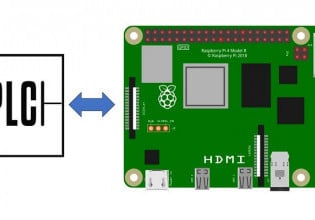M
There have been reports in the news recently that the American CIA spy organisation has claimed that there have been a number of successful recent hacker attacks on SCADA systems conducted via the Internet. This claim was made at a computer security conference in New Orleans USA on the 16th of January.
The CIA claimed: "We have information, from multiple regions outside the United States, of cyber intrusions into utilities, followed by extortion demands. (...) We have information that cyber attacks have been used to disrupt power equipment in several regions outside the United States. In at least one case, the disruption caused a power outage affecting multiple cities. We do not know who executed these attacks or why, but all involved intrusions through the Internet."
http://www.informationweek.com/news/showArticle.jhtml?articleID=205901631 http://www.theregister.co.uk/2008/01/21/scada_threat_warning/ http://www.sans.org/newsletters/newsbites/newsbites.php?vol=10&issue=5&rss=Y
However, there has not been a single piece of evidence to support this, or even a report from a credible source. I find it difficult to credit any of these claims, considering the source and the lack of supporting evidence.
Questions:
1) Has anyone seen credible news reports to support these claims?
2) Does anyone find these claims at all believable? By this I mean that this has actually taken place on a number of occasions involving electric utilities and wide spread blackouts.
The CIA claimed: "We have information, from multiple regions outside the United States, of cyber intrusions into utilities, followed by extortion demands. (...) We have information that cyber attacks have been used to disrupt power equipment in several regions outside the United States. In at least one case, the disruption caused a power outage affecting multiple cities. We do not know who executed these attacks or why, but all involved intrusions through the Internet."
http://www.informationweek.com/news/showArticle.jhtml?articleID=205901631 http://www.theregister.co.uk/2008/01/21/scada_threat_warning/ http://www.sans.org/newsletters/newsbites/newsbites.php?vol=10&issue=5&rss=Y
However, there has not been a single piece of evidence to support this, or even a report from a credible source. I find it difficult to credit any of these claims, considering the source and the lack of supporting evidence.
Questions:
1) Has anyone seen credible news reports to support these claims?
2) Does anyone find these claims at all believable? By this I mean that this has actually taken place on a number of occasions involving electric utilities and wide spread blackouts.






